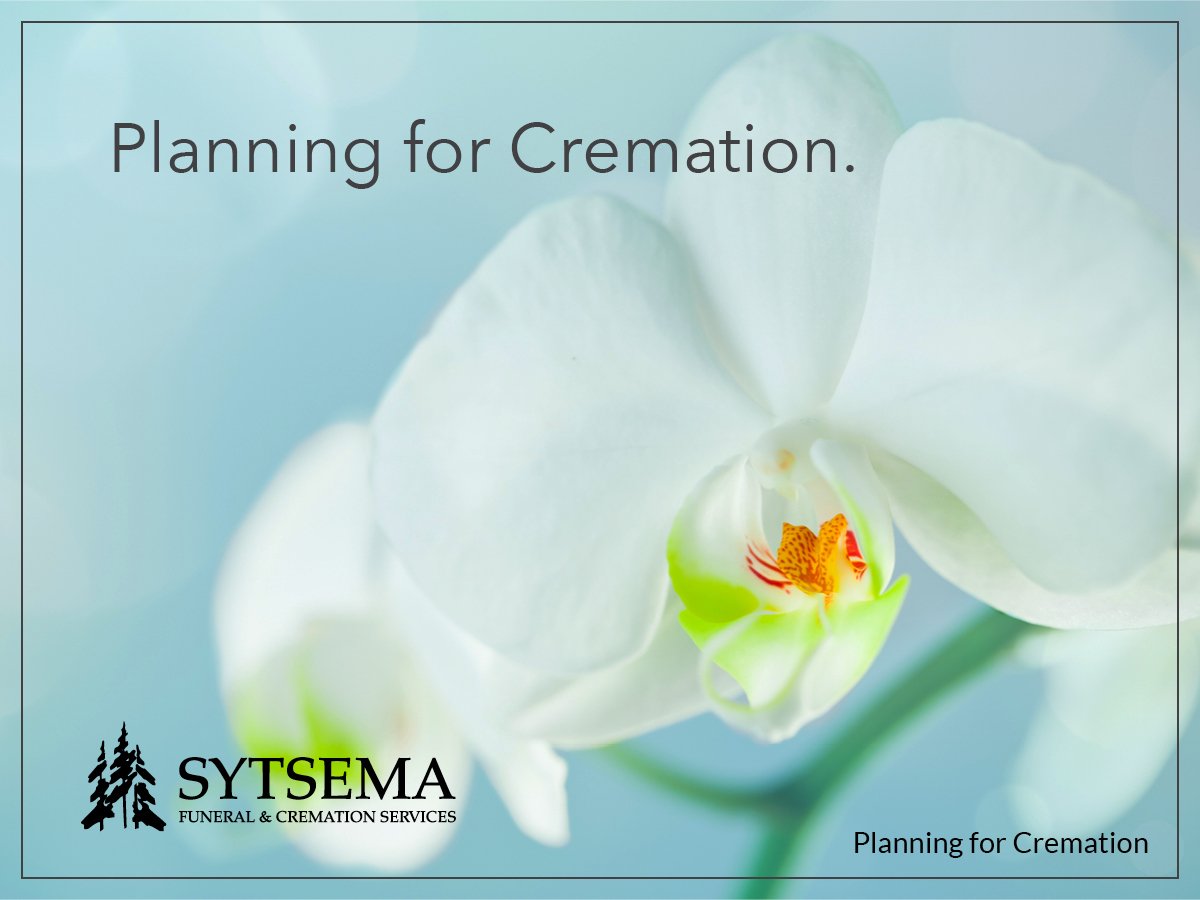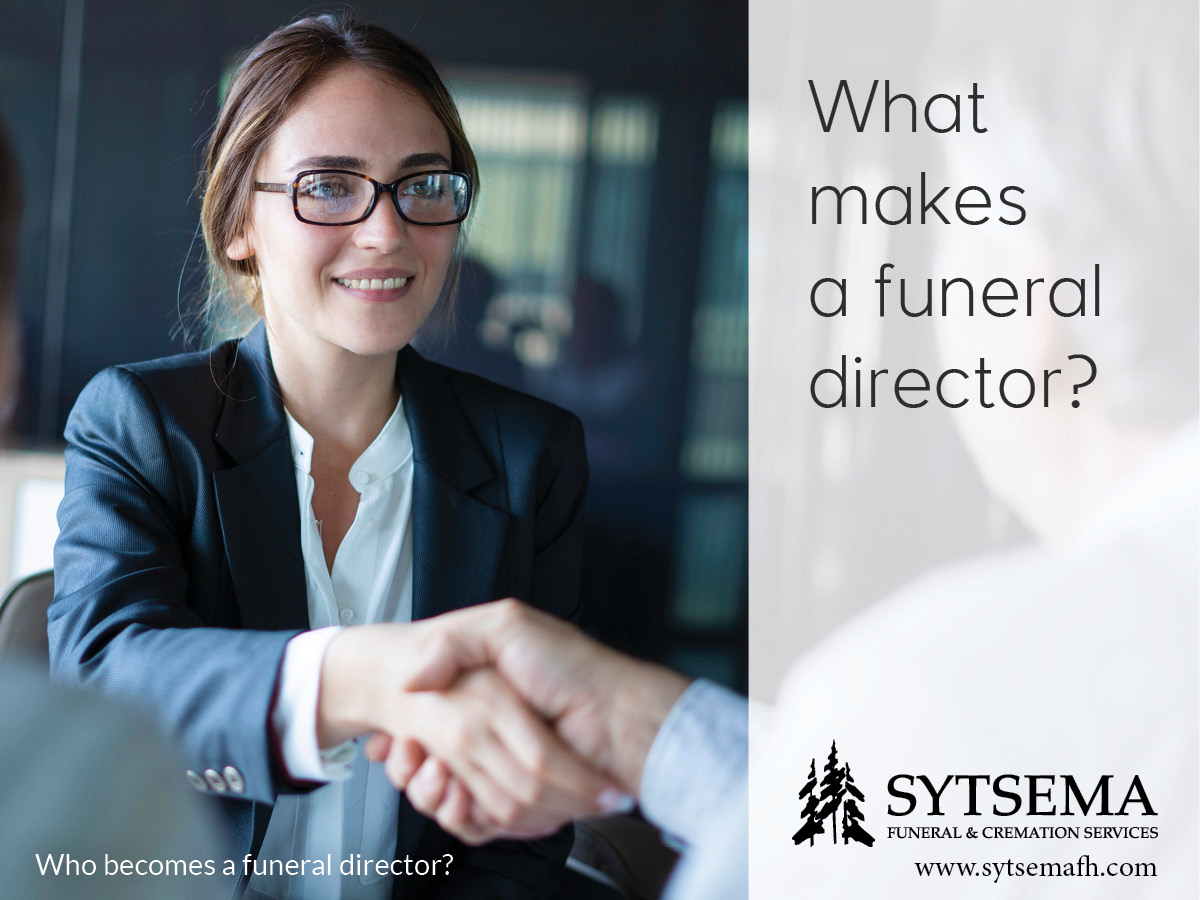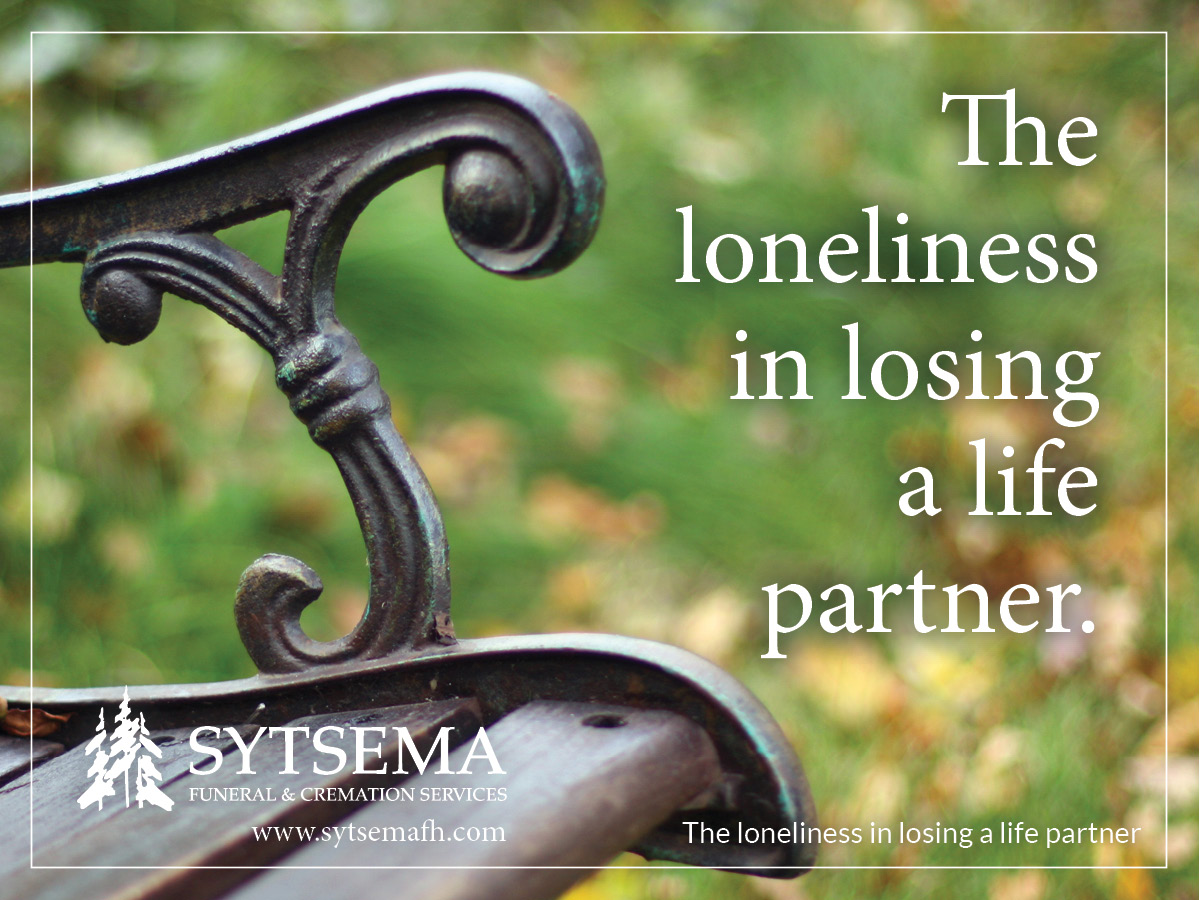
Planning for Cremation
Posted on March 2, 2024 by Sytsema Funeral Home | Leave a comment
Posted under Uncategorized
1. Choose a cremation provider 2. Decide on a “closing” ceremony 3. Choose a final resting place Start with the end. Where will your cremated remains “rest”? There are three general choices and a variety of options within each choice. On average, a cremated human body will be reduced to about five pounds of coarse […]
Continue Reading
Who Becomes a Funeral Director?
Posted on August 17, 2023 by Sytsema Funeral Home | Leave a comment
Posted under Uncategorized
The funeral director is often the son or daughter of a funeral director. They grew up understanding the contribution the job brings to the community. Funeral directors are helpers. It’s more than just being understanding and compassionate. Funeral directors know what to do. They can guide a family that is in disarray due to a […]
Continue Reading
The Loneliness in Losing a Life Partner
Posted on March 3, 2022 by Sytsema Funeral Home | Leave a comment
Posted under Uncategorized
To say one “feels lonely” after losing their life partner is an understatement, especially if you have been happily married for many years. In time, however, you may find yourself at a crossroads. On one hand you can’t imagine life with another partner while on the other you hand you can’t bear this loneliness. You […]
Continue Reading
Happy New Year 2020
Posted on December 27, 2019 by Sytsema Funeral Home | Leave a comment
Posted under Uncategorized
Wow, it’s hard to believe we are twenty years into the new millennium. Twenty years ago, as we moved from 1999 to 2000 people were stock piling all manner of survival goods. There was widespread panic over what would happen as the clock ticked down to the new year. It was called the Y2k glitch. […]
Continue Reading
How Much Do Funerals Cost?
Posted on September 6, 2019 by Sytsema Funeral Home | Leave a comment
Posted under Uncategorized
For most of us, one of the first questions think of when we think we need a funeral home soon is, “How much will it cost?” It’s understandable that everyone wants a simple answer to this question. Unfortunately, there is no one simple answer. Think of the last time you bought a pair of shoes. […]
Continue Reading